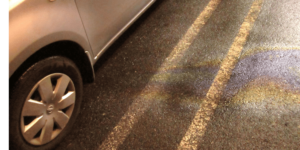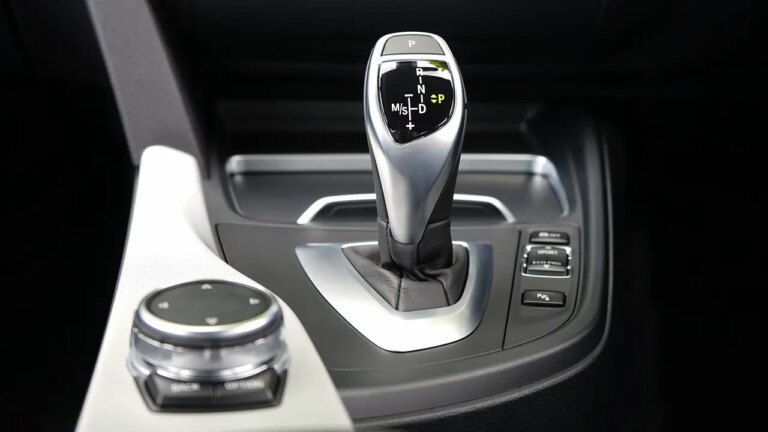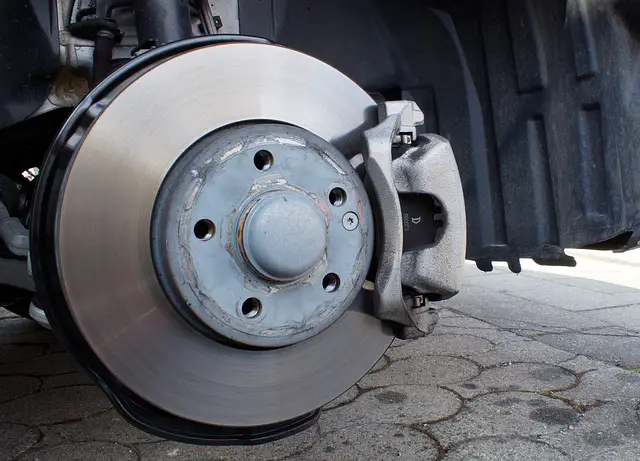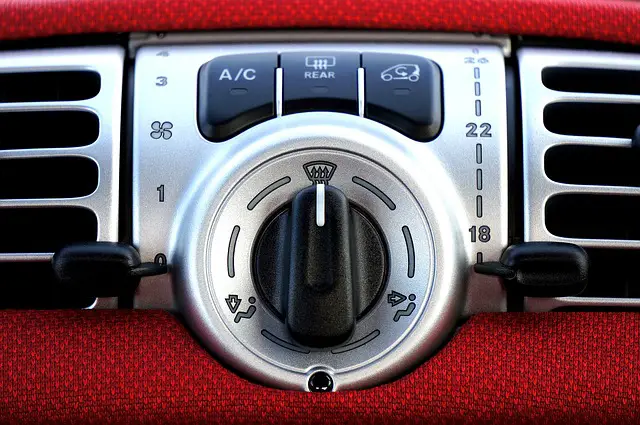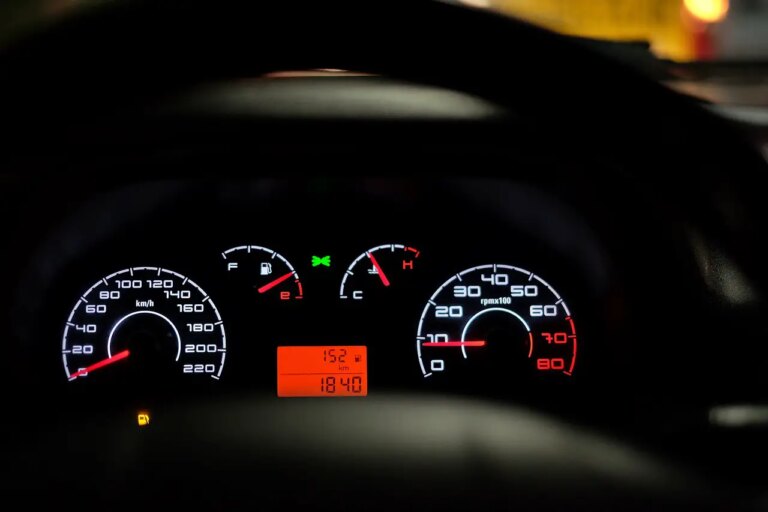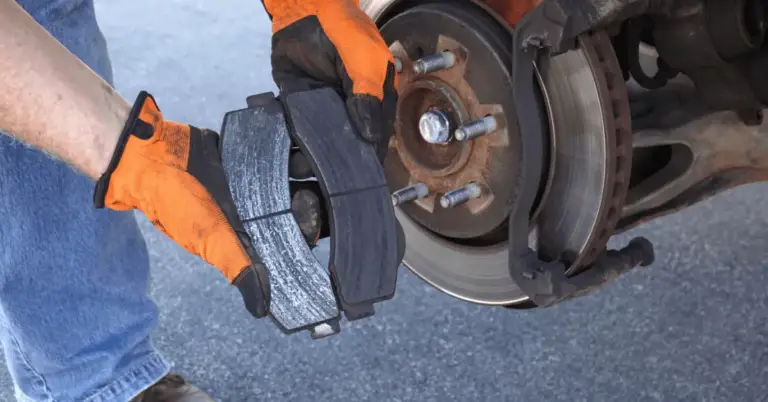There can be many reasons that can cause a rattling noise when you accelerate.
Here we’ll examine all of them, starting with the most common first along with the fixes and costs of each reason.
Briefly, though, the most common reasons are low transmission fluid or engine oil. Top up the levels and take for a test drive to see if the rattle goes away. The exhaust system might need attention or your car has worn engine mounts.
Loose Heat Shields
Heat shields are located under your car and encase the exhaust system.
Their purpose is to reflect, absorb, or redirect the engine’s heat from the cabin of the car and the passengers.
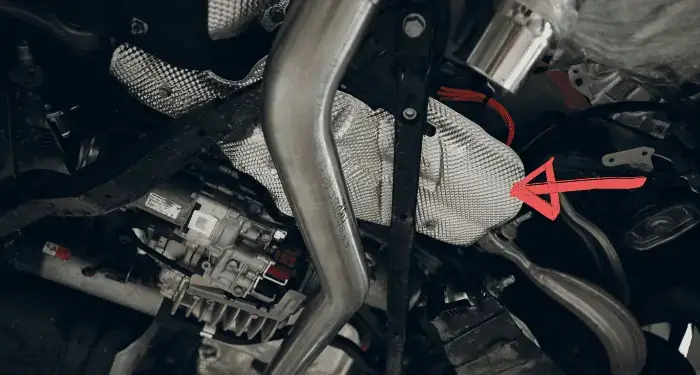
They do come loose and can cause a rattling noise. Often, they can just be clipped into place. It’s pretty easy to see if they are loose by looking under your car to if anything is hanging down. Make sure your car is cool before attempting to replace or repair it, though.
Parts are cheap as it’s basically metal and some screws. Should the heat shield need replacing – unlikely- expect to pay $150 approximately and another $50 for labor if you don’t want to do the repair yourself.
Low Oil Pressure
The engine needs to run at certain oil pressure to lubricate and protect itself from overheating. If the oil pressure is low, this can cause noise from the engine, which will be more noticeable under heavy acceleration as you’re asking the pistons to work harder.
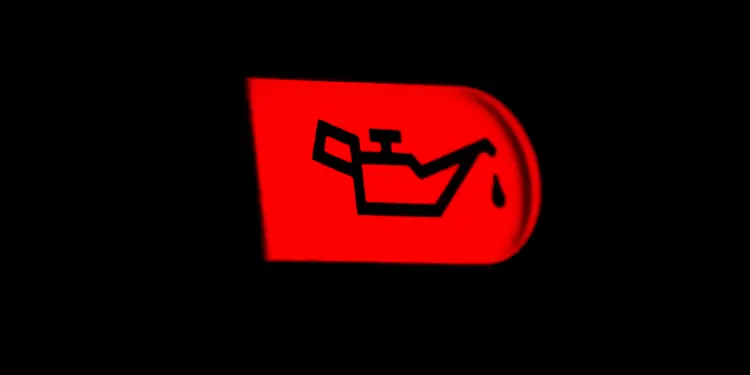
Low oil pressure is almost always due to low oil levels in the engine. This is a quick check and fix. Simply wait for the engine oil to settle in the sump and measure the level with the dipstick. If low, top up with oil.
Other visitors often read this next: What Noise Does An Engine Make When Oil Level Is Low?
While doing this, check for any deposits on the dipstick, such as metal shavings, as this may be a sign that low oil may have already caused damage to your engine.
Exhaust Components
Under acceleration, a loose or holed exhaust issue becomes more noticeable.
As the engine burns more fuel, the gases get forced through the exhaust at a higher speed, exacerbating the rattling noise.
Loose or broken pipe or hanger, rusted muffler and catalytic converter, blown exhaust gasket are all parts of the exhaust system that can cause the noise.
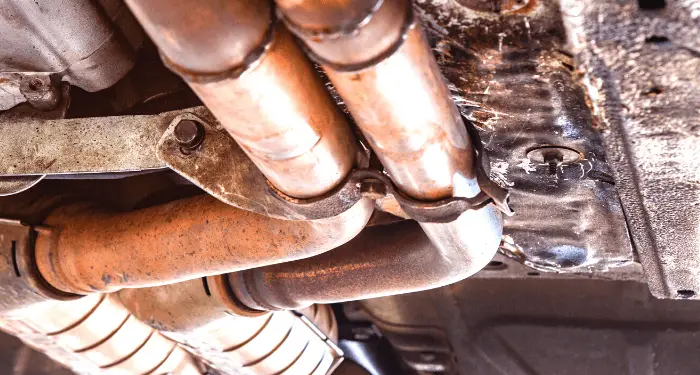
You can check for any of these problems yourself with a visual inspection under the car, and if you spot the problem, you may be able to replace the part yourself. The best scenario is that the exhaust has simply slipped the hanger that holds it up.
The worst case is that the catalytic converter is damaged. This is unlikely, though. More likely is a hole in the exhaust or a loosely connected muffler which can either be patched up – if not too bad – or replaced.
A complete exhaust system can cost from $200 to $700, depending on the make and model of your car. However, they come in sections, so the cost is likely to be considerably less.
Motor Mounts Have Worn
Engine or motor mounts are made of rubber and metal, and their job is to keep the engine in place and absorb any vibration so that it doesn’t transfer into the cabin.
Your car engine vibrates more under acceleration, so this is when a bad mount problem can be more noticeable.
Most cars have three or four mounts under the hood, but they can be hard to inspect correctly. If you have discounted the other causes above then, this is the next likely cause.
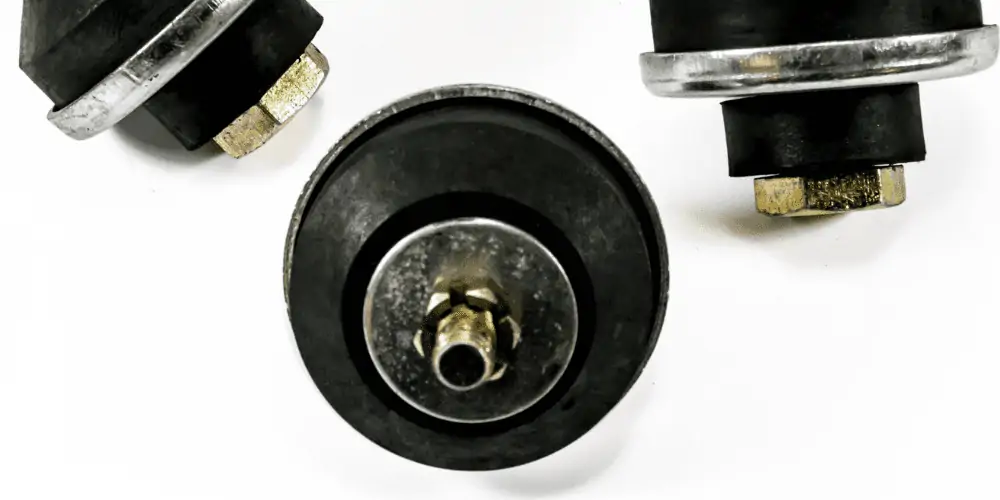
It’s often better to get all the mounts replaced at a car shop simultaneously as if one has failed; the others probably aren’t too far behind.
A bad engine mount is not an easy DIY fix as you’ll have to jack the car up and support the engine’s weight to change it/ them over.
Expect to pay between $35 and $175 for the engine mount and an additional $100 to $300 in labor – depending on how many mounts are being replaced. This video explains the inspection and replacement in more detail.
Related Article: Car Feels Unstable At High Speeds – Dangers and Fixes
Spark Plug Knock
If you have a diesel car, you don’t have any spark plugs to worry about, so you can move on to the next cause below.
This may be difficult to notice as it typically happens at the high end of acceleration when you enter the red line on your rev counter. What happens is the spark plugs are being asked to produce more sparks to ignite the fuel more quickly as demanded by it when you accelerate hard.
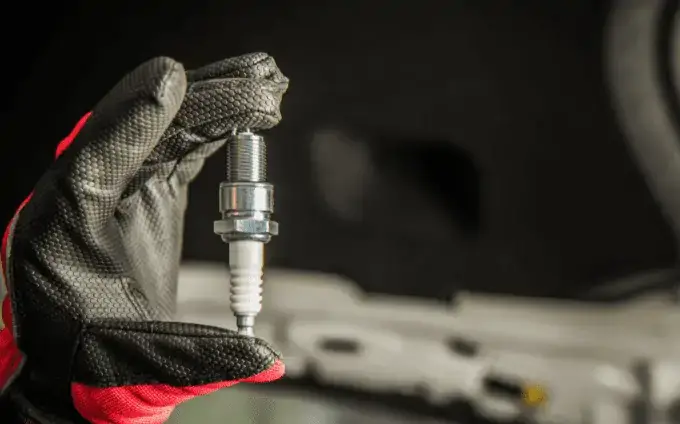
Often a spark plug that isn’t yet too corroded will cope with this under average acceleration.
Under hard acceleration, it can struggle and cause a rattling – more often a pinging – noise within the engine as it fails to ignite the fuel properly. This usually is accompanied by jerky acceleration.
A set of newly fitted spark plugs will range from $75 to $150, including labor. They come in sets of four usually, as there is only one per cylinder.
Transmission and Clutch Issues
There are many problems under this section that can cause a rattle when you step on the gas.
Usually, though, other telltale signs would accompany the rattle.
It’s always worth checking the transmission fluid in your car before considering any other problems in this section. There is a reservoir under the hood. If the transmission fluid level is below the minimum line, you need to top it up. Once done, take the car on the road and see if the rattle has gone.
The fluid should be red, if it’s gone a dark brown color it’s bad and needs replacing.
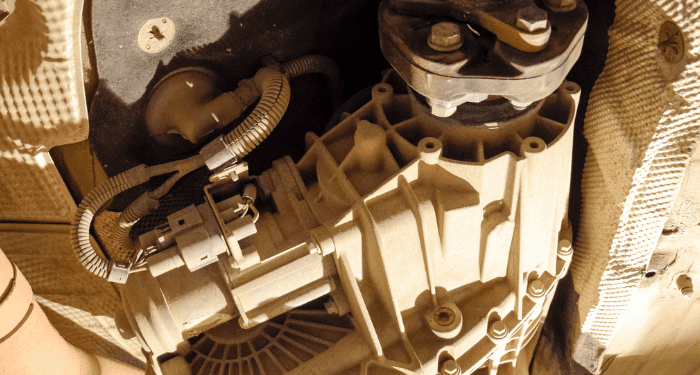
If that doesn’t work and you drive a manual car, it might be that the clutch plate is slipping under acceleration. With this, though, you’d probably be noticing the car not accelerating as it should as the clutch fails to engage correctly.
Other more expensive problems transmission issues could include a bad torque converter or a worn flywheel. These are jobs that only a suitably qualified mechanic or competent DIY’er should do.
A torque converter is a single unit part, making it a cheaper job as a total transmission rebuild isn’t required. A replacement including labor is $500 to $1200.
A replacement flywheel including labor is around the same price, depending on the make and model of the car.
Belt Pulleys and Tensioners
Belt pulleys and tensioners can be bent or work loose and create a rattling noise as the belt races along them. You can check the pulley with your hand when the engine is turned off. If there is play in the pulley or the belt is damaged and doesn’t have enough tension, it’s time to get them replaced or tightened.
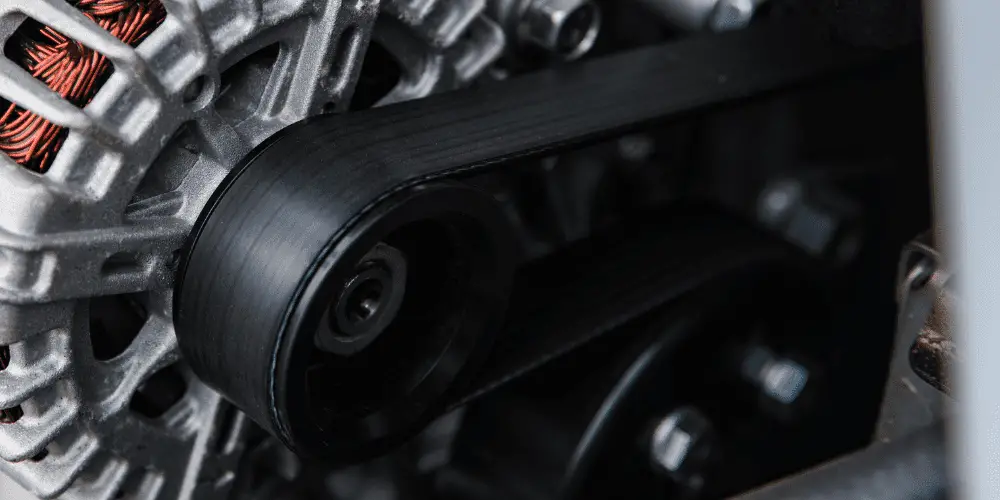
If the part fails completely, you’ll lose your power steering, and that water pump will also stop working. This could result in your car overheating and, in severe cases, cook your engine, requiring a complete engine rebuild.
New tensioners, belts, and pulleys are inexpensive, but the consequences of not getting the problem fixed could cause other more expensive parts to be replaced.
Wrong Octane Fuel
Unlikely, but it can happen. Most cars run on standard octane gas, but other sportier cars may need the higher octane fuel you see at the pump. The differences are explained here. Perhaps you’re driving a different car that requires the higher octane fuel for the first time or made a mistake when filling up.

The rattles you might be hearing are the gas not burning the fuel correctly. If you suspect this, stop driving as you could cause significant damage to your car’s engine.
Get a tow truck to take you to a car shop and get the tank drained thoroughly and the fuel lines purged.
There are other potential causes, but there would be more severe signs and symptoms than a rattle when you put your foot on the gas pedal hard.
In Conclusion
This noise is typically heard while a car is accelerating is a rattle or pinging noise. When the piston is traveling up on the compression stroke, heat from compression causes an air/fuel ratio in the engine cylinder to ignite too soon.
If you find that none of the above are the causes, it could be
- A noisy wheel bearing, but generally, they make a grinding noise when they are failing
- A stuck brake caliper, but this would generally be a noise you’d hear at any speed.
- A sign of a severe piston/valve engine fault, but this is usually a knocking noise accompanied by poor performance, oil leaks, and blue smoke from the exhaust.


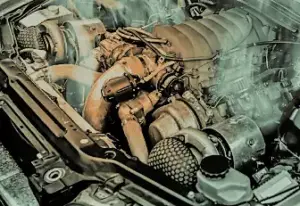
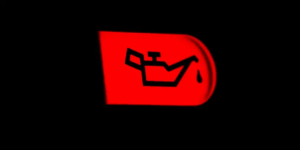

![Can Low Oil Cause Rough Idle? [ANSWERED] low-oil-pressure-dash](https://carzaza.com/wp-content/uploads/2023/12/low-oil-pressure-dash-300x150.png)
